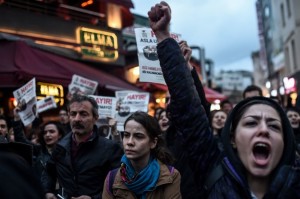Democracy Loses in Turkey
< < Go Back
The best thing that can be said about Turkey’s constitutional referendum is that many voters — 48.7 percent of those casting ballots — opposed President Recep Tayyip Erdogan’s most outrageous move yet to solidify his autocratic rule. Mr. Erdogan, who had expected to win 60 percent of the vote on Sunday, lost the major cities of Ankara and Istanbul. His legitimacy was further eroded by allegations of voting irregularities from international monitors.
Even so, his victory is expected to prevail in the final count, leaving Turkey in the hands of an erratic and vengeful man and the world wondering whether a nation that for decades has served as a crucial bridge between Europe and the Muslim world can possibly have a stable and prosperous future under someone with so little respect for democratic structures and values.
The referendum culminated Mr. Erdogan’s long effort to replace Turkey’s parliamentary system with a strong presidency. And while the changes won’t formally take effect until the 2019 presidential election, the outcome tightened his already strong grip and allowed him to boast of “enacting the most important governmental reform of our history.”
Important, yes, but not in a good way. By revising or repealing 76 articles in Turkey’s Constitution, adopted in 1982, the referendum abolishes the post of prime minister and transfers executive power to the president. It allows the president to issue decrees and declare states of emergency, and to appoint ministers, senior government officials and half the members of Turkey’s highest judicial body.
As a practical matter, given his Islamist-based A.K.P. party’s majority in Parliament, Mr. Erdogan has been effectively exercising many of these powers. The fact that they have now been formally ratified in the Constitution can only reinforce his dictatorial instincts and further threaten the separation of powers on which liberal democracies have traditionally depended.
More From The New York Times:




